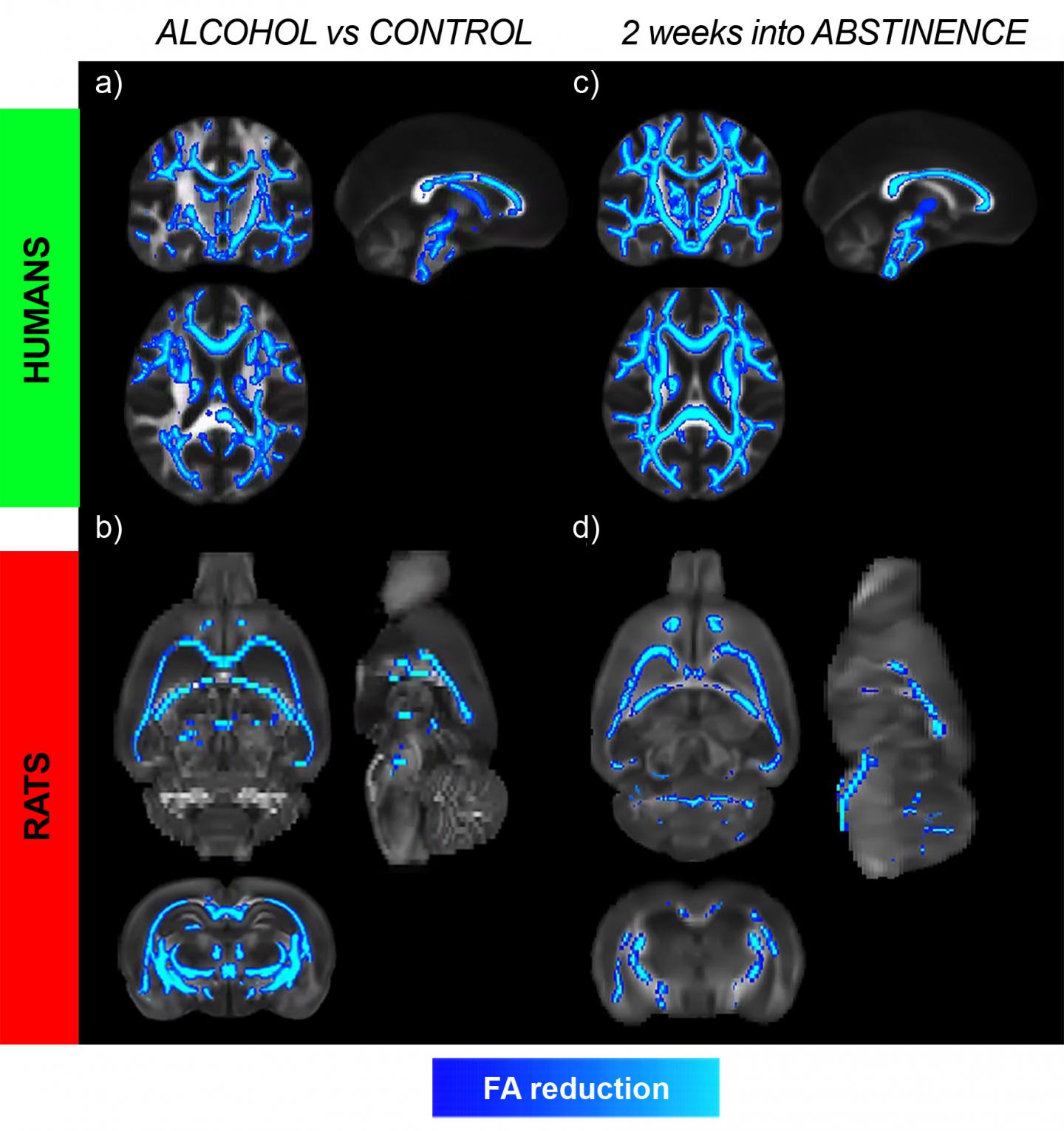These results refute the current belief that changes in the brain begin to normalize immediately after stopping alcohol consumption

Credit: Silvia de Santis
Although the harmful effects of alcohol on the brain are widely known, the structural changes observed are very heterogeneous. In addition, diagnostic markers are lacking to characterize brain damage induced by alcohol, especially at the beginning of abstinence, a critical period due to the high rate of relapse that it presents.
Now, a joint work of the Institute of Neuroscience CSIC-UMH, in Alicante, and the Central Institute of Mental Health of Mannheim, in Germany, has detected, by means of magnetic resonance, how the damage in the brain continues during the first weeks of abstinence, although the consumption of alcohol ceases.
The research, published today in JAMA Psychiatry, whose first author is Silvia de Santis, shows that six weeks after stopping drinking there are still changes in the white matter of the brain, as revealed by the neuroimaging study carried out on ninety voluntary patients interned for his rehabilitation treatment in a German hospital.
The results of this work are surprising, explains Dr. Santiago Canals, of the Institute of Neurosciences CSIC-UMH, who has coordinated the research: “Until now, nobody could believe that in the absence of alcohol the damage in the brain would progress”.
Ninety patients with an average age of 46 years hospitalized because of an alcohol use disorder participated in this study. To compare the brain magnetic resonances of these patients, a control group without alcohol problems was used, consisting of 36 men with an average age of 41 years.
“An important aspect of the work is that the group of patients participating in our research are hospitalized in a detoxification program, and their consumption of addictive substances is controlled, which guarantees that they are not drinking any alcohol. Therefore, the abstinence phase can be followed closely”, highlights Dr. Canals.
Another differential characteristic of this study is that it has been carried out in parallel in a model with Marchigian Sardinian rats with preference for alcohol, which allows to monitor the transition from normal to alcohol dependence in the brain, a process that is not possible to see in humans”, explains Dr. De Santis.
The damages observed during the period of abstinence affect mainly the right hemisphere and the frontal area of the brain and reject the conventional idea that the microstructural alterations begin to revert to normal values immediately after abandoning the consumption of alcohol.
With the consumption of alcohol “there is a generalized change in the white matter, that is, in the set of fibers that communicate different parts of the brain. The alterations are more intense in the corpus callosum and the fimbria. The corpus callosum is related to the communication between both hemispheres. The fimbria contains the nerve fibers that communicate the hippocampus, a fundamental structure for the formation of memories, the nucleus accumbens and the prefrontal cortex, “explains Dr. Canals. The nucleus accumbens is part of the reward system of the brain and the prefrontal cortex is fundamental in decision making.
The researchers from Alicante and Germany now try to characterize the inflammatory and degenerative processes independently and more precisely, in order to investigate the progression during the early abstinence phase in people with alcohol abuse problems.
###
Media Contact
Pilar Quijada
[email protected]
Related Journal Article
http://dx.




